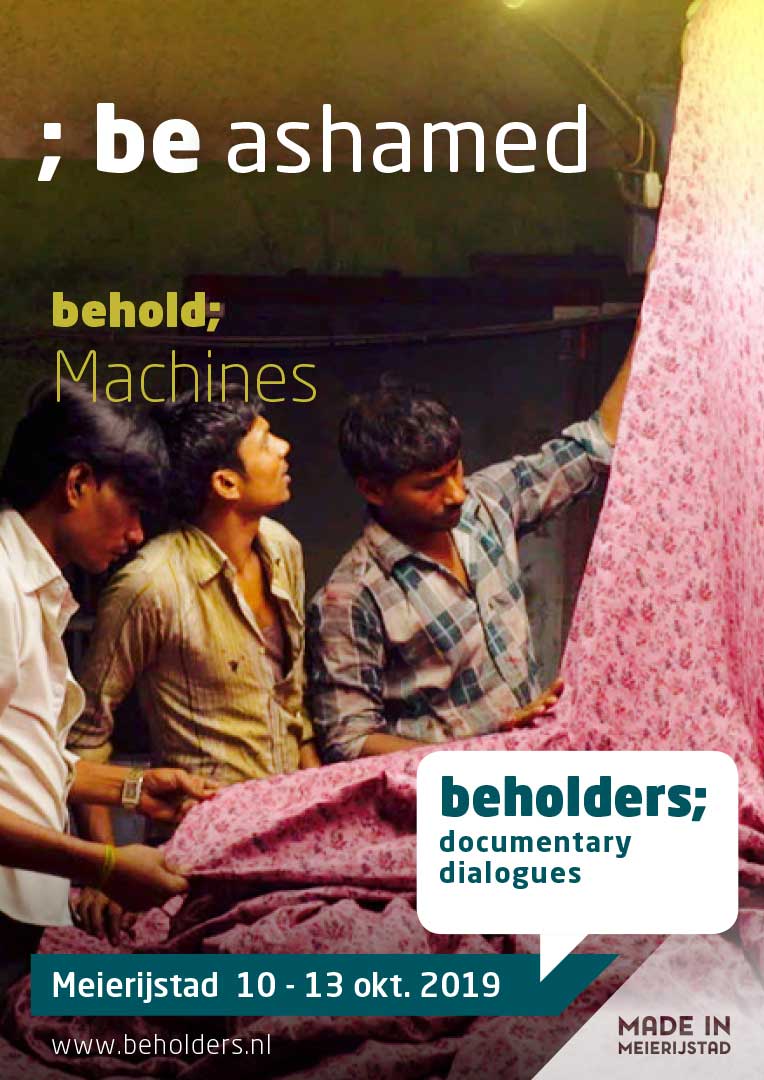director's statement 2019;
Rahul Jain
Machines
As a five year-old boy I used to roam around in my grandfather’s now-defunct textile mill in Surat, in India’s Gujarat state. It was easy to get lost in the labyrinthine corridors. I was overwhelmed by the machines as a three-feet tall kindergartener. It was this sensation of being minuscule in front of the gigantic processing machines that took me back to a similar factory twenty years later – this time with a camera.
Even when the rich go, they leave the world with nothing.
I remember in fragments getting lost in the long aisles of printing machines, enjoying the smell of coal in the factory’s boiler rooms maybe because it was forbidden for me to be there in the first place. A child’s perspective is motivated by height, but as an adult the depth perception takes over. Seeing the world on an eye-to-eye level basis helped me sort my inclinations well. We forget this in our everyday existential structures because these things are hidden from our immediate field of vision, and I wish to elucidate through the camera this simple eye-to-eye perspective we sometimes choose to not acknowledge. It’s easy to look away from things we that make us uncomfortable so I set out to use cinema as a curatorial device to confront some of these things with a temporal patience.
…My only satisfaction is that everyone dies. Even when the rich go, they leave the world with nothing…
Venturing into many factories I have gotten a sense of my class, my identity among the 1.3 billion Indians I share my nationality with. A good fraction of the laborers don’t reveal their stories to me, probably due my association with the owners. But a majority of them are able to open up past our immediate and social differences, revealing the circumstances that lead them here. Young teenagers who joined these factory when I was an infant are now middle-aged adults. Some of them seem to remember me by my first name. I have travelled the world back and forth many times over, as these workers have toiled away their complete existences in these factories of exclusion and alienation.
…Working on the wheel pays Rs.210 ($US 3) per shift. From that I have to eat, save and raise my family…
Food, housing and fabric are the material necessities of existence. A factory functions within these interests built from a variety of human elements. There is one boss relative to thousands of workers. A lack of unionized labor in a densely populated, quickly accelerating economy leaves room for a lot to be left unseen, deliberate overlooking of a multitude of human beings for the interests of a few. It is not just one factory, it’s a civilizational structure. The systems that allow this to happen are the ones that needs collective acknowledgement.
Rahul Jain
Machines


